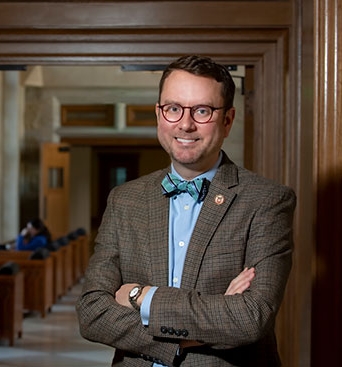
“Arguably, the Jesuits were the founders of higher education,” says Associate Dean Joseph Desciak. “They’ve been doing this for 450 years, and they’ve mastered it.”
Desciak is director of the Academic Advising Center at Boston College’s Morrissey College of Arts and Sciences. He arrived on the Heights last fall after more than a decade at Fordham University in New York City, where he earned a doctorate in educational administration and served as assistant dean and director of academic advising.
The Academic Advising Center is where first-year students begin to embark on their paths through BC’s Core Curriculum, and to think further about their future careers. More than half of all freshmen enroll at Boston College undeclared—“the best way to come in,” says Desciak. He oversees a team of 10 pre-major advisors and coordinates roughly 90 faculty advisors who meet regularly with those students to help them stay on track—and to steer them to additional resources, from the Career Center to Counseling Services, if needed.
“We prompt them to think about the purpose of a Jesuit liberal arts education, and to get excited about that,” says Desciak, a native of northeast Pennsylvania. “When you graduate from here, you should be able to think critically, to write, to debate, and to think outside the box, which is needed now more than ever.”
Desciak says a major goal in his new role is to be a good communicator—not only with students, but with parents, who sometimes aren't certain how to convey their academic questions.
“If a parent calls and says, ‘What are my kid's grades?’ I can’t answer that,” Desciak says, pointing to FERPA the (Family Educational Rights and Privacy Act), a federal law that protects the privacy of student education records. The law applies to all schools that receive funds under an applicable program of the U.S. Department of Education. “But if parents want talking points for those Sunday phone calls or holiday visits, I want to give it to them.”



